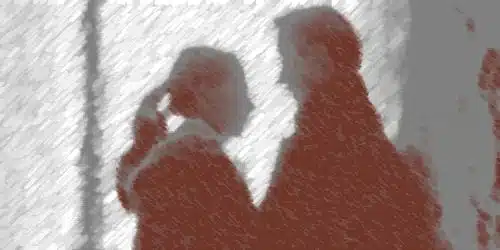
“Athens has long been a place where lonely people go,” claims Simon Van Booy in the opening paragraph of his novel, Everything Beautiful Began After. If we didn’t already know this or don’t believe it, he’ll quickly prove his point in this akimbo Odyssey filled with characters aimlessly questing for that intangible ‘thing’ called home.
The novel begins in modern Athens, but often it’s easy to forget which decade, if not century, the characters live in. Van Booy seems to deliberately create a landscape of timelessness for his characters to inhabit, so that even direct references to modern technology slide by largely unnoticed. This emotional climate is essential for his stories, as his characters are deliberately unable to take solace in the typical placebos of the modern world.
The novel is divided into three parts serving the impartiality of an omniscient narrator that inhabits the minds of three very distinct characters. Rebecca, George and Henry are all living in Athens, each striking a personal balance between escapism and discovery. Rebecca has left her marriage and family behind in France, after working for many years as a flight attendent. George is a young, scholarly American alcoholic. Henry is a British archaelogist cheerily pursuing important work but hiding a terrible secret that will haunt him until he excavates it.
The book begins as a love triangle: George is drunkenly and pathetically in love with Rebecca, who needs him because he is her only friend, until she falls in love with Henry. George and Henry also strike up a deeply intimate friendship, only to discover that they love the same woman. Somewhat surprisingly, this conflict is quickly resolved. Henry, whose deep secret is that he is forever tarnished by the tragic death of his baby brother, wants nothing more than to bring happiness to his two new friends, and they willingly and fully accept.
It’s an Unbearable Lightness of Being for our generation, executed with a softer, wiser and less existentialist approach. These characters possess none of the intellectual overtones oozing from Milan Kundera’s. Van Booy achieves this simplicity by crafting the thoughtful narrator as a silent caretaker. There’s a voice of compassion and wisdom subtly woven throughout that goes above the heads of the characters. It’s what saves the book from plunging into an underworld of unnecessary melodrama.
Of course, while pain is the foundation of the book, its characters are slowly but myopically attempting to escape its clutches. Sadly, when the novel begins, they are all miles away (figuratively and literally) from finding the things they crave. Each has attempted escape as an anecdote to injury, but each embodies the gritty past in every moment. Arriving in the present will require each character to undergo multiple transformations. These characters are fighting a very modern struggle to understand how much belief and innocence can be sustained in this world, and how much they personally are capable of.
Throughout, Van Booy reminds us that we are in fact capable of hearing a story this raw. The plot is highly complex while the sentiments are simple. These characters are not confused about or distracted from their goals of happiness and peace, but they are utterly unqualified to attain them. Unfortunately, more tragedy ensures, and a devastated Henry is left to assume the role of the protagonist, and piece together salvation from the wreckage of decades of grief.
Henry’s pain is so startling and determined that it sometimes feels unrealistic, but Van Booy writes with piercing truth. It’s so stark that it’s impossible not to believe it’s real — in other words: “you can’t make up stuff like this.” Van Booy creates an interesting contrast however; stylistically, his prose is fiction to the nth degree. It’s wildly lyrical, inevitably poetic and somehow transcends the mundane cycles of the average human mind.
On the other hand, his subject matter is boldly, almost embarrassingly visceral. We all want to love and to be loved, to find and be found. Fortunately, most of have enough distractions and surface happiness to avoid these thoughts or aches. In Everything Beautiful Began After, Van Booy gives us a pointed but generous reminder that none of us are immune to the layers of life.
